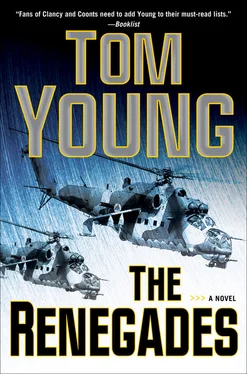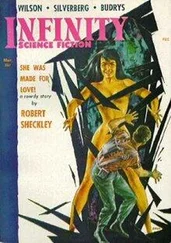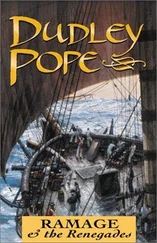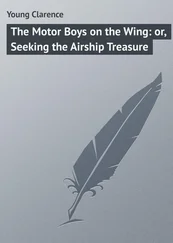“The point is that all this might mean some rift among the insurgents,” the officer said.
Parson could see the idea interested Gold, but he was starting to lose patience. Historians could sort this out later, if anybody cared. But he was tired and hungry and wanted to finish the briefing.
“So who is he?” Parson asked.
“No one we’ve ever seen before this month,” the officer said. “In some of his communiqués, he goes by the nom de guerre of Chaaku.”
“Pashto word for knife ,” Gold said.
Figures, Parson thought. What’s the Pashto word for asshole ?
“But we think his real name is Bakht Sahar. Middle thirties, educated at Darul Uloom Haqqania madrassa in Pakistan.”
“Jihad University,” Gold said.
Pakistan again. Some ally. Gold and Parson—shot down and captured—had appeared in a video with another terrorist from Pakistan named Marwan. Parson could still feel the dread, the sick fear, waiting for the blade.
And now there was another Marwan. Parson had given up hoping for sweetness and light in Afghanistan. That kind of hope was like flying an instrument approach through the fog down to minimums: watching the localizer and glide slope needles, your thumb poised over the go-around button, thinking I’ll see the approach lights at any moment. And if you kept hoping long enough, you could fly your ass right into the ground.
Parson looked over at Rashid. “What do you think about all this, buddy?” he asked.
“I think words of my grandfather,” Rashid said.
“How’s that?”
“He say how Allah make Afghanistan. When Allah create world, he have things left over. Mountain. Desert. Rock. All the rubbish left over from world go to make Afghanistan.”
Parson didn’t know what to make of a story that described Afghanistan and everything in it as an afterthought. It was one thing for him to give up on Afghanistan, but to hear Rashid lose heart was something else. But who could blame Rashid if he did? The man had just lost part of a crew, and there was no telling what other friends and family he’d lost over the years. You couldn’t ask about that sort of thing, so Parson didn’t know Rashid’s family history. He just hoped Rashid could keep his head in the game, since he and all the other Afghan fliers had plenty of work cut out for them.
That became even more clear after the briefing, as Parson walked along the flight line with Rashid. Pallets of food, blankets, and other relief supplies were piling up on the ramp. The C-130s brought it in faster than the helicopters could distribute it. If the Mi-17 crews didn’t catch up, pretty soon the Mazar airfield would get mogged out—maximum on ground—and there’d be no room for anything else.
Rescue and medical teams were also getting backed up. Parson saw people walking around in official-looking uniforms and jumpsuits of green, khaki, and blue. He saw patches from organizations he’d not run into before: Los Angeles County Search and Rescue Team, Fairfax County Urban Search and Rescue Team, Air Force Expeditionary Medical Support Health Response Team. The medical crews could treat patients in the camp here at the airport, but those search-and-rescue guys couldn’t do any good until they got out into the field.
“Much to fly,” Rashid said.
“You got that right,” Parson said. He noted that Rashid was looking across the ramp and seeing the big picture, not just his own flight schedule. Another good sign. Senior officer material. The Afghans needed to grow their own leadership class all over again, since so many of the natural leaders had been killed off or chased away. War brought a kind of reverse Darwinism: It eliminated the strongest and the brightest.
“Let us see where we fly next,” Rashid said.
“Might as well.”
In the flight planning room—just a section of the tents that made up the Air Operations Center—they found Lieutenant Aamir poring over a VFR chart. Rashid spoke to him in words Parson could not understand. He got the tone, though. A command voice, though not an unfriendly one. Aamir answered with something that sounded matter-of-fact. To Parson, Pashto had a pleasant ring. It didn’t have the hard edges of German or Russian—or maybe he just liked it because he associated it with Sophia.
“He say the…” Rashid pointed to the whiteboard.
“Schedule,” Parson said.
“Yes, schedule. Aamir say schedule for us to fly tomorrow to village near Kunduz.”
Short flight, Parson knew. Less than a hundred miles. He leaned over the chart Aamir had spread across a table. The Afghan copilot drew a pencil line along the straight edge of a navigational plotter. He had erased a previous line and started over again. Good planning, Parson thought. Rashid and Aamir would probably just take a radio compass bearing off the Kunduz NDB, but it never hurt to have a backup. And Parson—a navigator before he was a pilot—had preached chart usage from the time he’d become an adviser. Maybe they were finally listening.
The chart covered the G-6B sector, which included northeastern Afghanistan, parts of former Soviet republics, a section of northern Pakistan, and even a sliver of China. Some of the roughest terrain in the world, with elevations up to twenty-five thousand feet. Arid, too. The color-coded chart wasn’t green; it was brown—except the white parts where snow shrouded the mountains all year long.
Aamir’s course line ended at a tiny circle without a name. Other nameless circles surrounded it, the grouping of them marked NUMEROUS VILLAGES. The elevation in that area was a little more reasonable—more like six thousand feet. But higher mountains loomed nearby. Not the worst kind of terrain for a helicopter, but certainly not the best.
“Has he looked at the weather?” Parson asked.
More chatter in Pashto.
“He has not,” Rashid said.
“I’ll get it for you.”
Parson tried not to give the Afghans too much help; they’d need to operate on their own sooner or later. But he could log on to the weather computer and get more detailed information than they could get in a verbal briefing over the phone. From a laptop placed on a table made of rough planks and cinder blocks, he printed out the text forecast, the surface analysis chart, and a constant pressure chart.
The text forecast brought lousy news. Winds out of the northwest tomorrow morning at twenty knots gusting to thirty. Moderate turbulence.
The charts backed up the text. The isobar lines on the constant pressure chart bunched up so tightly that the cheap inkjet printer had blurred some of them together. The lines connected points of equal pressure, just the way contour lines on a terrain map connected points of equal elevation. Close isobars meant rapid changes in pressure, which meant strong wind. If anything, the text forecast was conservative.
Rashid looked over Parson’s shoulder. “How is weather?” he asked.
“Buddy,” Parson said, “we’re going to get our teeth kicked in.”
After the briefing, Gold and Reyes stopped by the mess tent. The cooks there really didn’t cook; they just heated up Unitized Group Rations—MRE food in big tray packs. The turkey cutlets and green beans tasted lousy, but they provided a quick way to feed all the flight crews, relief workers, and refugees at Mazar. The fare might improve as the chow tent got better established, Gold knew, but UGRs would do for now.
She sat at a folding table with the pararescueman, sipped coffee from a foam cup. The coffee was weak, but at least it was hot. With so much misery around her, Gold felt guilty about every comfort. The warm cup in her hand made her think of the newly homeless in the cold. The food, however tasteless, reminded her of people going hungry in remote villages. She unzipped her field jacket and thought of refugees with only the one set of filthy clothes on their backs.
Читать дальше












